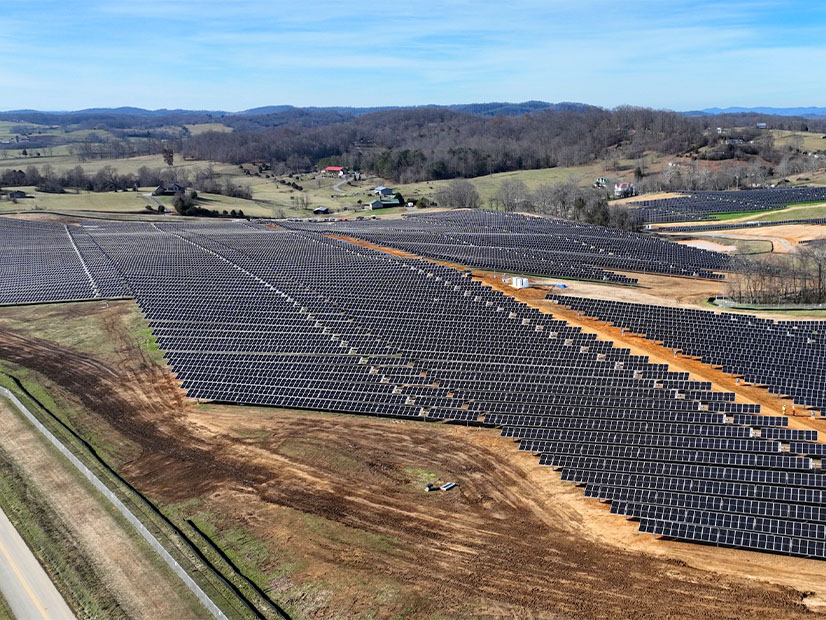The U.S. Department of Energy is seeking input from the public on how to use the authority that President Biden granted it earlier this year to improve power grid reliability.
In a request for information (RFI) issued Monday, DOE cited the president’s June 6 order invoking the Defense Production Act to “accelerate domestic production of” several “key energy technologies”: solar panel components; transformers and electric grid components; heat pumps; insulation; and electrolyzers, fuel cells and platinum group metals.
In an accompanying press release, DOE said that alongside the White House, it has “engaged with stakeholders on maximizing the impact” of the DPA authorities granted it, and claimed that Biden’s “commitment to growing clean energy that’s made in America” has led to billions of dollars in investments in solar, wind and battery storage facilities, along with electric vehicle factories.
Now DOE says the focus is on the risks to national security and defense, as well as grid reliability, posed by the fact that the production processes for many critical power grid components require materials sourced from overseas. The department cited the ongoing disruptions to global supply chains from the COVID-19 pandemic as evidence of the fragility of foreign supply chains, while the Russo-Ukraine War that has raged since February shows “the dangers of our overreliance on foreign sources for grid components and fossil fuels from adversarial nations.”
These crisis situations have arrived at the same time as the worsening impacts of climate change have led to an increasing incidence of hurricanes and wildfires. As a result, utilities have experienced “wait times [of] upwards of two years for grid transformers” that force stakeholders not only to postpone urgent repairs, but also to delay work on existing projects and getting new construction underway. (See Utilities See Challenges, Opportunities in Supply Chain Issues.)
The RFI covers all of the equipment mentioned in Biden’s June order except for heat pumps. DOE mentioned several possible approaches to improve U.S. supply chains such as direct purchases, purchase commitments and financial assistance. The department’s goal is “to understand further how to increase the manufacturing output and the rate of deployment of key clean energy technologies” by soliciting comment on:
- technology supply chain challenges and opportunities;
- domestic manufacturing, including small- and medium-scale enterprises;
- investment in American manufacturing talent; and
- energy equity, community access and economic benefit.
“The Defense Production Act provides us with a vital tool to make targeted investments in key technology areas that are essential to ensuring power grid reliability and achieving our clean energy future,” Energy Secretary Jennifer Granholm said in the statement. “DOE is eager to continue hearing ideas from industry, labor, environmental, energy justice, and state, local and tribal stakeholders about how we can best use this powerful new authority to support the clean energy workforce and technologies needed to combat climate change.”
Responses to the RFI must be submitted by 5 p.m. ET on Nov. 30.




